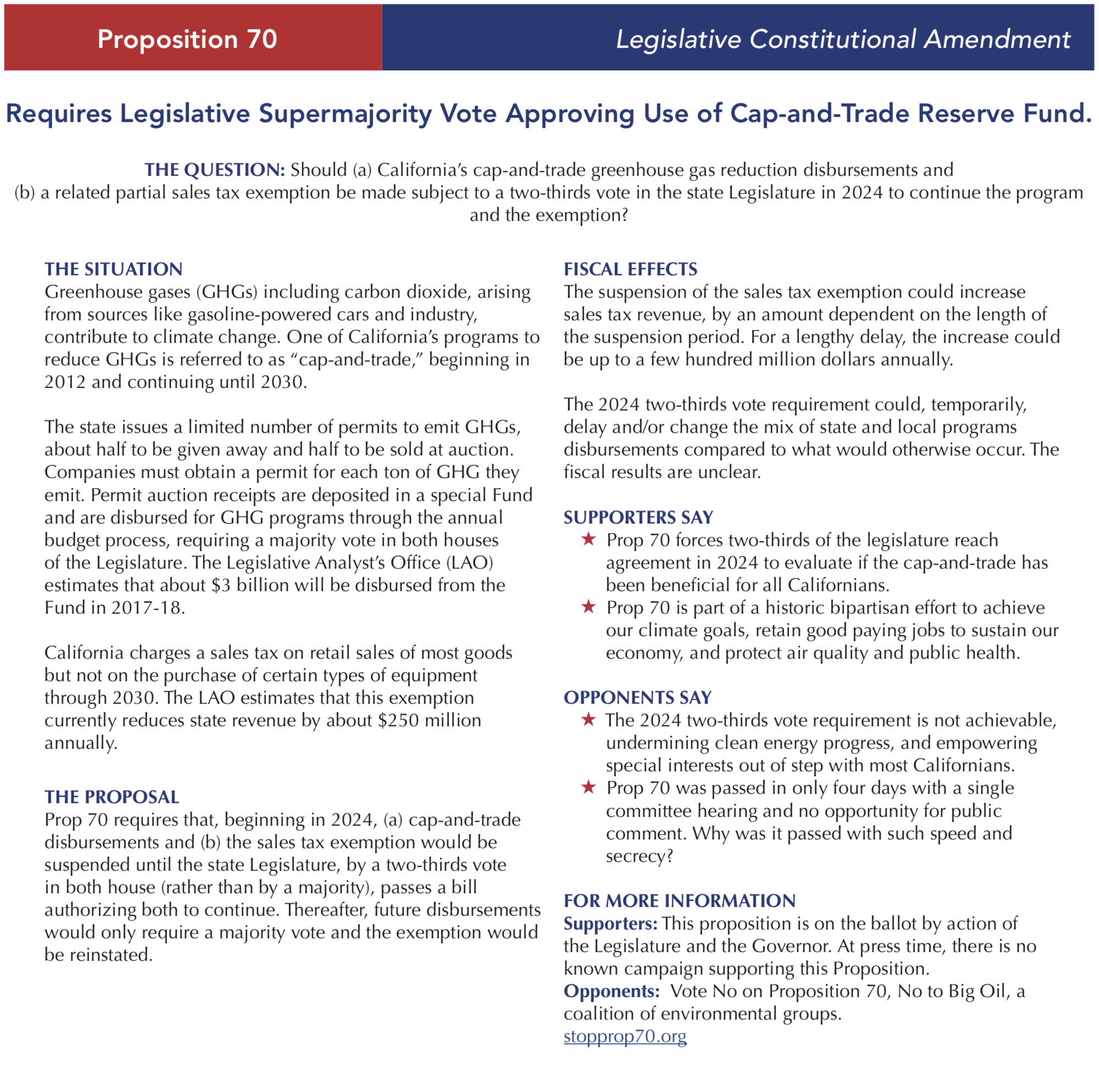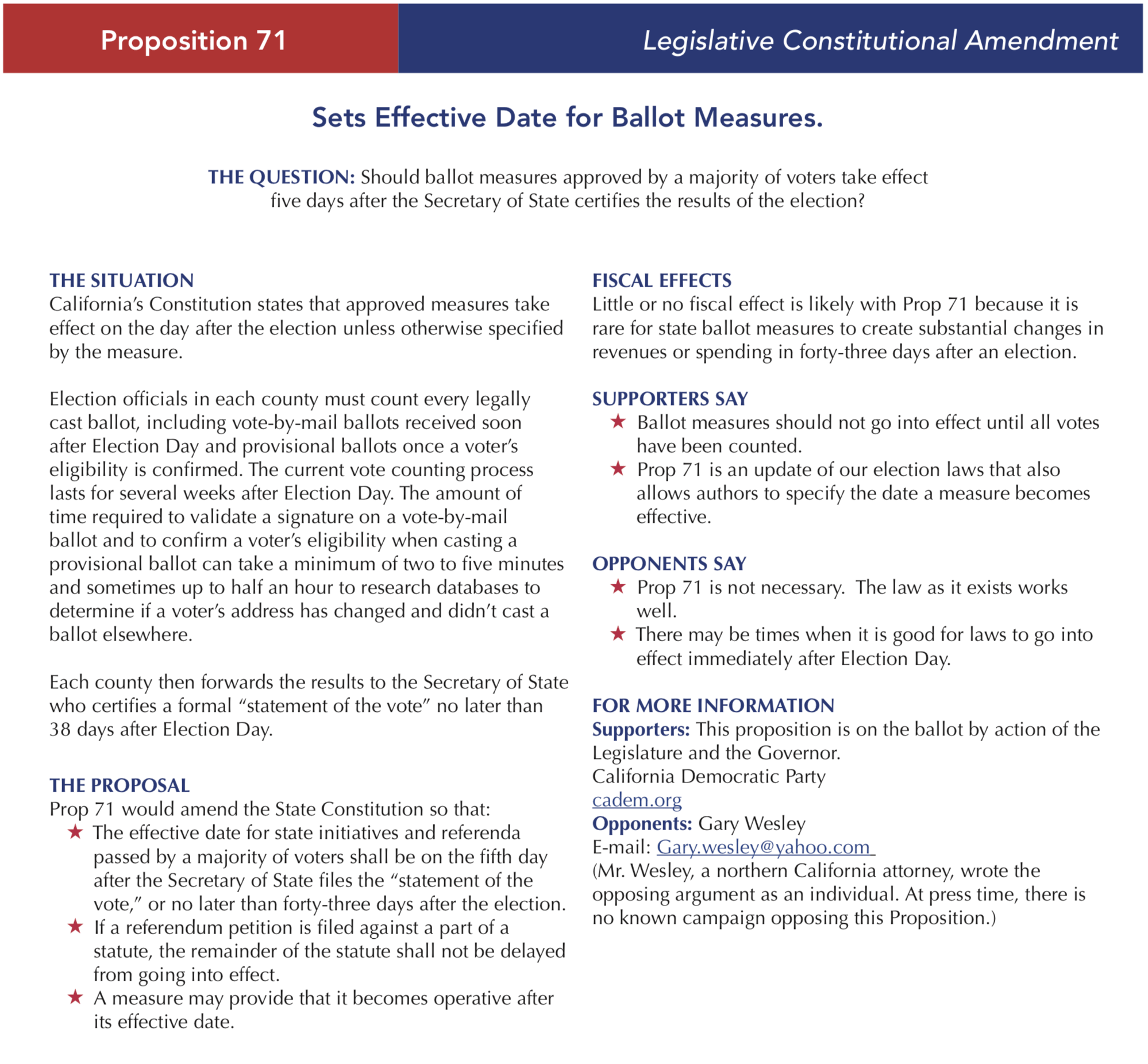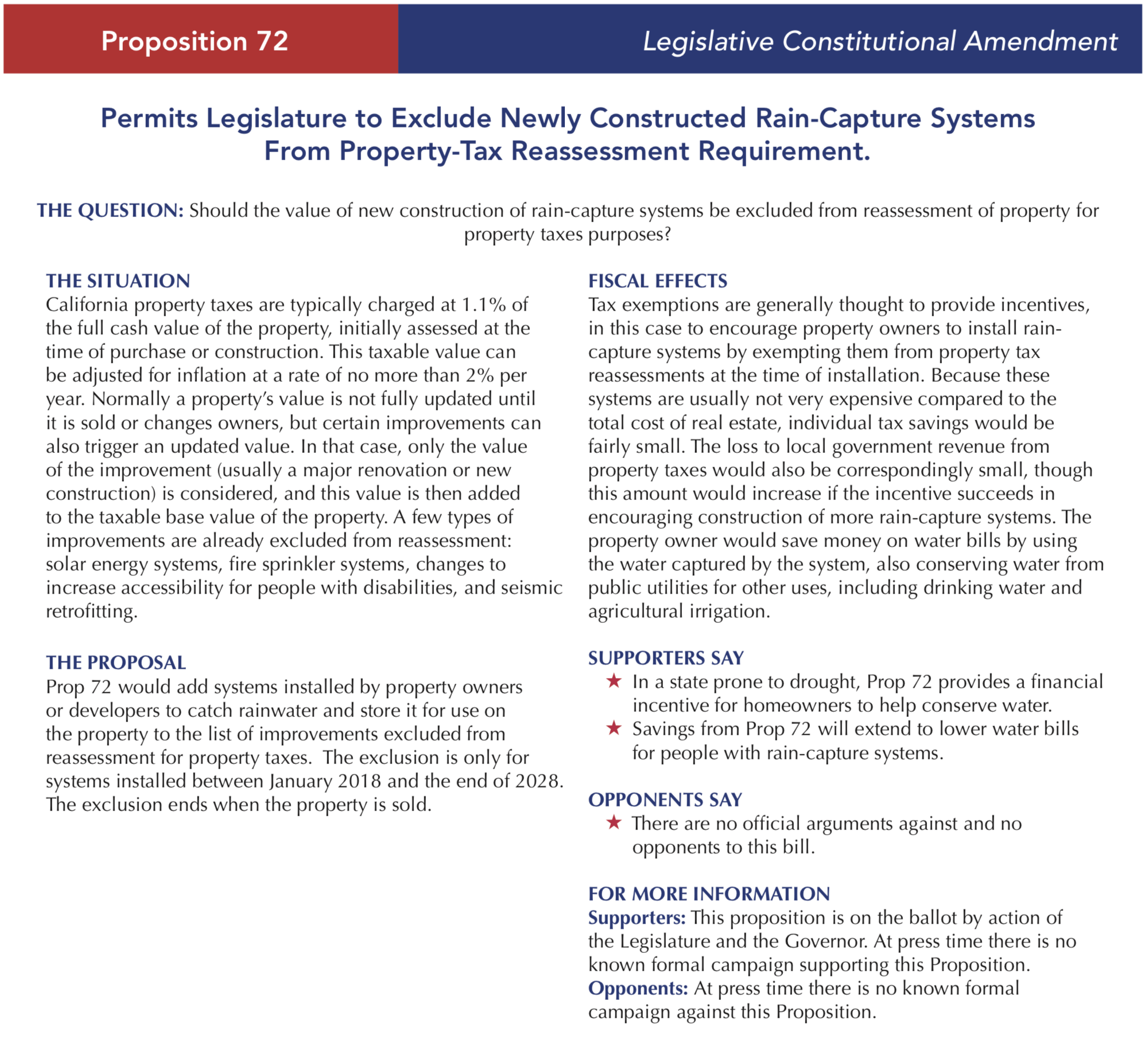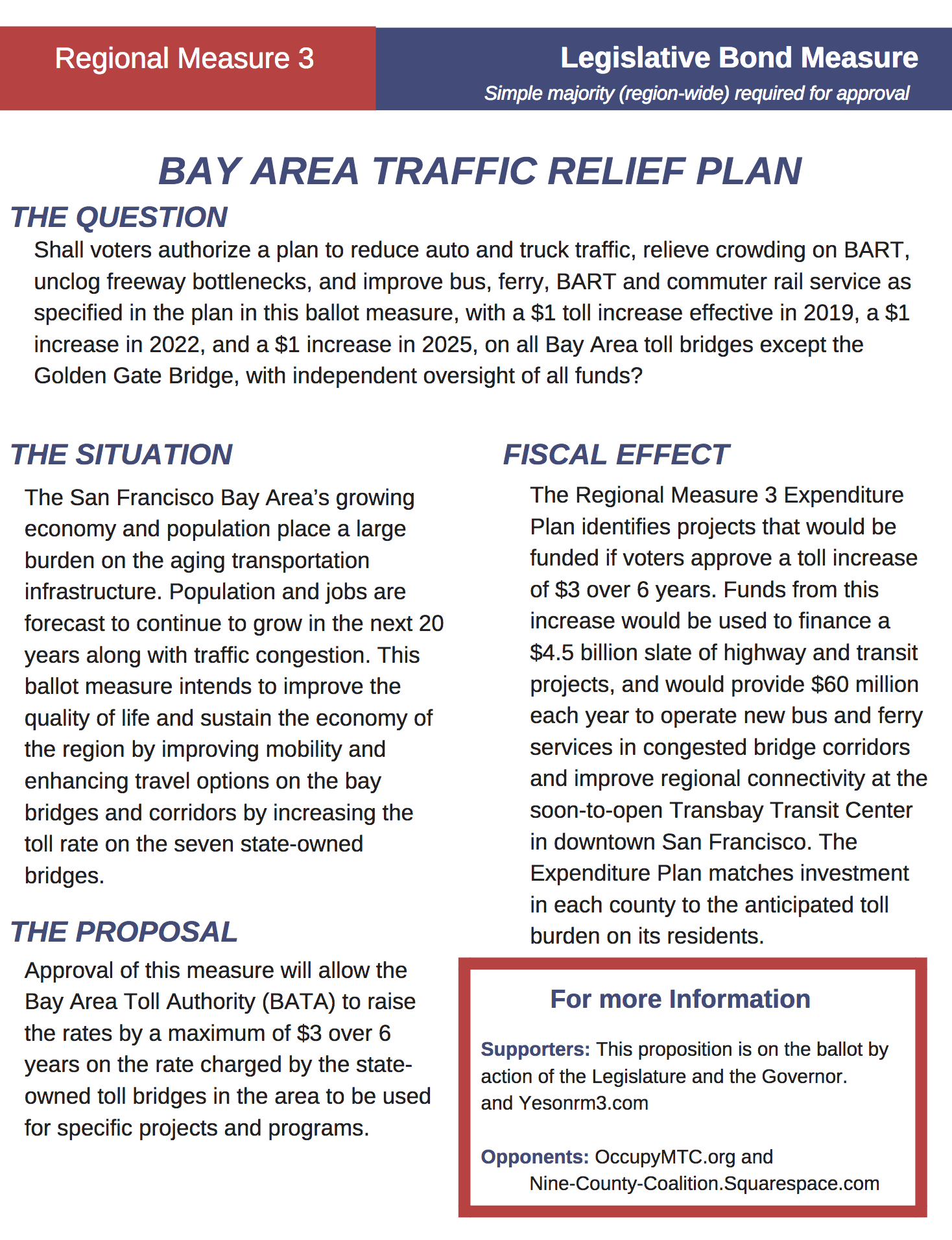Drop boxes for Mail-in Paper ballots. No stamps needed!
The Question:“To expand access to childcare and preschool for low- and middle-income families; help homeless and at-risk children, including help preventing child abuse and neglect; attract and retain quality childcare workers; and add spaces for childcare at locations throughout the county, shall the County of Alameda enact a 30-year ½% sales tax providing approximately 140 million dollars annually with citizens’ oversight, public disclosure of spending, and mandatory annual audits?”
The Situation: Child care and early education services that are partially or fully funded by the government are provided by non-profit and public agencies and by community-based organizations and individuals. Services are provided at centers and schools, in homes caring for up to 14 children, and in informal settings. School programs operate under regulations of the California Department of Education; centers and home-based care are licensed by the California Department of Social Services. Child care and early education providers have varying requirements for staffing and facilities. All must meet basic health and safety standards. Informal care is that provided by friends, families, or others who can meet the needs of particular families and situations; it is unlicensed.
The Alameda County Early Care and Education Planning Council “serves as a forum to address the child care needs of all families and in all child care programs, both subsidized and non-subsidized, in Alameda County. The Council’s major responsibilities are … 1)provide a forum for the recommendation of local priorities for child care funding and the development of policies to meet the needs identified within those priorities when appropriate and requested; and 2) advise the County Board of Supervisors (CBS) and County Superintendent of Schools (CSS) on child care program and policy issues.”
The need for affordable services by low and middle income families in Alameda County far exceeds the demand. Only about a third of children whose parents are working have access to a licensed child care or early education setting.
Subsidies do not cover the full costs of quality care.
Most child care workers are poorly paid and struggle to earn decent livings. Those who are employed at centers and as family care assistants are covered by state and municipal minimum wage laws. Low wages lead to high staff turnover and difficulty in finding and keeping qualified staff.
The Proposal: Measure A will enact a half cent sales tax effective for 30 years, from October 1, 2018 through September 30, 2048. Proceeds will be deposited in a special fund entitled “child care and early education tax fund,” and allocated by the County Board of Supervisors “based on the demonstrated unmet child care and early education needs and the county’s commitment to a geographically dispersed network of child care and early education providers, for any of the following purposes:
- To increase access to affordable, high quality child care and early education services for low and middle income children from birth through 12 years of age, especially for children who are homeless and have other high priority needs;
- To improve and maintain the quality of new and existing child care and early education services throughout the county; or
- To improve the wages and benefits of child care providers and early educators who provide these services.”
Funds may not supplant those budgeted by the county for child care and early education services in 2016-17 unless state, federal, or other non-county funding sources have been reduced.
A citizen oversight committee appointed by the Board of Supervisors shall annually review and report on the fund’s expenditures for the prior year.
Measure A calls for a planning and advisory council for the fund; this will most likely be the existing Alameda County Early Care and Education Planning Council. Implementation will be done by an entity designated by the Board, most likely the Alameda County Children and Families First Commission (“First 5”). This entity will administer the county’s plan for providing services.
(N.B. Not detailed in Measure A itself is the Planning Council’s plan, a draft of which was published in February 2018. It is available at www.acgov.org/ece/ballotmeasure.)
Fiscal Effect: The half cent sales tax is expected to raise $140 million a year for services related to child care and early education. Allocations are described in the county plan. The tax will expire in 2048 unless modified or extended before then.
Funds from the tax will help leverage additional funds from other sources.
What a Yes or No Vote Means
A YES vote means purchases in Alameda will be taxed an additional one half of one percent (.5%). This will bring the combined state and county sales tax rate to 9.75%. Proceeds of the additional tax will expand and improve child care and early education services.
A NO vote means that sales tax rates in Alameda County and county funding for child care and early education will remain the same as they are now.
Supporters say
- Measure A will provide safe, affordable, quality child care and pre-school to thousands more children from low and middle income families.
- Research shows the critical importance of positive learning experiences to children in the first five years of life.
- Measure A provides for strict accountability for the use of funds.
- Better compensation will benefit caregivers and educators, help attract and retain qualified staff, and help build stable relationships essential to children
Opponents say
- The benefits claimed for Measure A are vague. Taxpayers deserve to know how their money will be spent.
- The county has failed to demonstrate sufficient accountability for the use of existing sales tax revenues.
The Question: To provide affordable housing and prevent displacement of vulnerable populations, including low and middle-income households, veterans, local artists, seniors, and the disabled; provide supportive housing for people experiencing homelessness; and help low and middle- income households purchase homes; shall the City of Emeryville issue $50,000,000 in bonds with an estimated average levy of 4.912 cents per $100 of assessed value, generating approximately $3,422,000 annually to pay bonds over 27 years, requiring independent oversight, with all funds staying local?
The Situation: The City Council passed a resolution on March 6, 2018, recognizing affordable housing issues faced by the City and authorizing a special election on June 5, 2018. In its resolution, the City Council recognizes that rental unit costs are not affordable for many very low, low and middle-income residents, including vulnerable populations such as veterans, local artists, seniors and people experiencing homelessness. The resolution also recognizes that increasing affordable housing can improve safety while allowing residents to meet other basic life necessities.
The Proposal: An estimated parcel tax of $49.00 per $100,000 of assessed value will be levied on all properties to fund affordable housing initiatives, including up to 500 units of “Section XXXIV” housing or low rent housing. An oversight committee and independent auditors will monitor this fund.
Fiscal Effect: The best estimate of the total cost of the bonds, including principal plus interest, is $92.4 million.
Supporters Say Measure C will:
- Provide homes for seniors who might be forced to relocate after raising their families in Emeryville
- Help the most vulnerable populations, such as low-income individuals and families, veterans, and people with disabilities
- Improve safety by helping homeless people to get off the street and into safe, supportive housing with appropriate services
- Make sure people who provide essential community services like teaching, fire fighting and public safety can afford to live where they work.
- Help low and middle-income households to purchase homes, including artists.
Opponents Say: No argument opposing Measure C was submitted.
A “Yes” vote means: The City of Emeryville will be able to issue and sell bonds up to $50 million to fund specified affordable housing activities.
A “No” vote means: The City of Emeryville will continue to address affordable housing issues as it does today.
For the original text of the City of Emeryville’s resolution authorizing this special election, go to this link: link
© League of Women Voters Berkeley Albany Emeryville 2018








